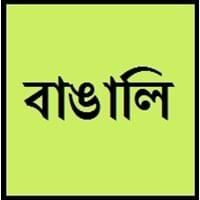Countries
Autonomous Republic of Abkhazia, Georgia, Republic of Abkhazia
Andaman and Nicobar Islands, Bangladesh, India, Sierra Leone
National Language
Abkhazia
Bangladesh, India
Second Language
Not spoken in any of the countries
India
Speaking Continents
Europe
Asia
Minority Language
Not spoken in any of the countries
Australia, Canada, Italy, Japan, Kuwait, Malaysia, Maldives, Nepal, Oman, Pakistan, Qatar, Saudi Arabia, Singapore, South Africa, South Korea, United Arab Emirates, United Kingdom, United States of America
Regulated By
Not Available
Bangla Academy, Paschimbanga Bangla Akademi
Interesting Facts
- Abkhaz is a north-west Caucasian language.
- Abkhaz is spoken in Abkhazia by only 100,000 people, while in Turkey there are 500,000 people speaking Abkhaz.
- Bengali language is the World's sweetest language.
- 21st February is celebrated as an International Mother Language day, which is based on Bengali language.
Similar To
Adyghe language, Abaza language
Assamese and Oriya
Derived From
Caucasian languages
Sanskrit Language
Alphabets in
Abkhaz-Alphabets.jpg#200
Bengali-Alphabets.jpg#200
Scripts
Cyrillic
Bengali, Brahmic family and derivatives
Writing Direction
Right-To-Left, Horizontal
Left-To-Right, Horizontal
Language Levels
Not Available
Hello
Бзиа збаша (Bzia zbaşa)
হ্যালো (Hyālō)
Thank You
Иҭабуп (It̢abup)
ধন্যবাদ (dhonnobad)
How Are You?
Ушҧаҟоу? (Ušṗaꝁou?)
কেমন আছিস? (kêmon achhish?)
Good Night
Ашара шәзыбзиарахааит (Ašara šəzybziaraxaait)
শুভরাত্রি (shubhoratri)
Good Evening
Уа, мшы бзиа (Ua, mšy bzia)
শুভ সন্ধ্যা। (shubho shondha)
Good Afternoon
Уа, мшы бзиа (Ua, mšy bzia)
ভাল বৈকাল (Bhāla Baikāla)
Good Morning
Уа, Шьыжьы бзиа (Ua, Š’yž’y bzia)
সুপ্রভাত (shuprobhat)
Please
Not Available
অনুগ্রহ করে (Anugraha karē)
Sorry
Not Available
দুঃখিত (dukkhito)
Bye
Абзиараз (Abziaraz)
বিদায় (Bidāẏa)
I Love You
Not available
আমি আপনাকে ভালোবাসি (ami apnake bhalobashi)
Excuse Me
Not available
মাফ করবেন (Māpha karabēna)
Where They Speak
Abkhazia
Bangladesh, Burma, India
How Many People Speak
Not Available
Where They Speak
Caucasus
Bangladesh, India
How Many People Speak
Not Available
Where They Speak
Turkey
India
Speaking Population
Not Available
Second Language Speakers
Not Available
Native Name
аҧсуа бызшәа (aṗsua byzš˚a)
বাংলা (baɛṅlā)
Alternative Names
Abxazo, Abkhazian
Bangala, Bangla, Bangla-Bhasa
French Name
abkhaze
bengali
German Name
Abchasisch
Bengali
Pronunciation
Not Available
Not available
Ethnicity
Abkhaz people
Bengalis (Bengali people)
Origin
c. 1650
1000–1200 CE
Language Family
Northwest Caucasian
Indo-European Family
Subgroup
Not Available
Indo-Iranian
Branch
Not Available
Indic
Early Forms
No early forms
Abahatta, Old Bengali
Standard Forms
Abkhaz
Bengali
Language Position
Not Available
Signed Forms
Not Available
Not Available
Scope
Individual
Individual
ISO 639 6
abks
Not Available
Glottocode
abkh1244
beng1280
Linguasphere
No data Available
59-AAF-u
Language Type
Historical
Living
Language Linguistic Typology
Subject-Object-Verb
Not Available
Language Morphological Typology
Agglutinative
Not Available
Abkhaz and Bengali Greetings
People around the world use different languages to interact with each other. Even if we cannot communicate fluently in any language, it will always be beneficial to know about some of the common greetings or phrases from that language. This is where Abkhaz and Bengali greetings helps you to understand basic phrases in Abkhaz and Bengali language. Abkhaz word for "Hello" is Бзиа збаша (Bzia zbaşa) or Bengali word for "Thank You" is ধন্যবাদ (dhonnobad). Find more of such common Abkhaz Greetings and Bengali Greetings. These greetings will help you to be more confident when conversing with natives that speak these languages.
Abkhaz vs Bengali Difficulty
The Abkhaz vs Bengali difficulty level basically depends on the number of Abkhaz Alphabets and Bengali Alphabets. Also the number of vowels and consonants in the language plays an important role in deciding the difficulty level of that language. The important points to be considered when we compare Abkhaz and Bengali are the origin, speaking countries, language family, different greetings, speaking population of these languages. Want to know in Abkhaz and Bengali, which language is harder to learn? Time required to learn Abkhaz is 27 weeks while to learn Bengali time required is 44 weeks.





